India’s #1 Award Winning Agency
ETL INFORMATICA
Learn Informatica with our ETL certified experts. We are best Informatica training institute in Pune and Dubai, provide a unique project for each student
- Industry-leading ETL expertise
- Practical, project-oriented training
- Certification preparation
- Strong job prospects in data warehousing
Rating 4.9/5 By 24,576 Clients
Grow Your Brand
by Partnering with Ad2Brand
ETL INFORMATICA
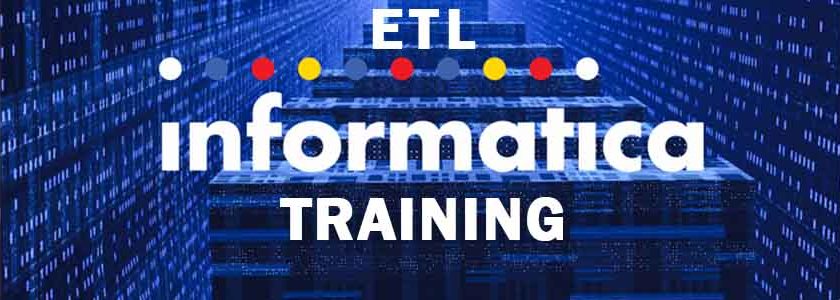
ETL INFORMATICA TRAINING
According to Forrester Research, Informatica ETL is the most widely used ETL (Extract Transform Load) tool used in the data warehousing industry for data integration and data quality services. It is a data integration tool based on the ETL framework and is used as a data integration software in many industries like business, finance, health, insurance, telecommunication and more. Informatica is a complete power suite for data integration and data management converting raw data from multiple sources into useful information. Our Informatica training course will help you master all concepts of data warehousing, ETL, data integration and use of the Informatica PowerCenter ETL Tool. Our practical industry oriented course will give you the skill set to clear the Power Center Developer Certification and Power Center Administrator Certification. We cover Informatica right from basics to advanced level and have faculties working in live ETL projects who can give you the right expertise and insights in using the tool.
CAREER PROSPECTS:
As we see, ETL Informatica is a leader in the data warehouse & ETL segment because it is easy to use, has a simple interface and has the capabilities to work with large varieties of data sets, systems and applications. Because of this, it is being adopted by the large number of organizations like IBM, Amdocs, Accenture, HSBC posing good job opportunities for Informatica experts. More than 70% of data warehousing projects are now using Informatica as the ETL tool for their DWBI operations.
WHAT WILL YOU ACQUIRE FROM INFORMATICA TRAINING ?
You will learn,
- Informatica installation, configuration
- Informatica Architecture, Informatica PowerCenter
- ETL functionalities, transformation, performance tuning
- Data migration
- Monitoring and testing of data
- Data warehousing
- Repository Management
- Workflow Informatica
- Informatica SQL and XML transformation
ETL INFORMATICA SYLLABUS
- Definition of Datawarehouse
- Learn Integral Processes of Datawarehousing
- Concepts: Subject-Oriented Data, Integrated Data, Non-Volatile Data and Time-Variant Data
- History of Datawarehousing
- What is use of Datawarehosuing?
- Learn Datawarehousing and Business Intelligence
- Understanding Datawarehousing Schema in Real Life
- Case Studies on Banking, Stock Market and Ecommerce
- Facts and it types
- Learn Additive, Semi-Additive, and Non-Additive Facts
- Cumulative and Snapshot
- Datawarehousing Architecture
- Types of layer: Data Source Layer, Data Extraction Layer, Data Staging Layer, ETL Layer, Data Storage Layer, Data Logic Layer, Data Presentation Layer, Metadata Layer, System Operation Layer
- Dimension table and Fact table
- Dimensions types
- Slowly Changing Dimensions (SCD) and SCD1, SCD2, and SCD3
- Rapidly Changing Dimensions, Confirmed Dimensions and Degenerate Dimensions
- Understanding Processing
- Online Transactional Processing and Online Analytical Processing
- Understanding Difference between OLAP and OLTP
- Various Types of OLAP
- Multi-Dimensional OLAP, elational OLAP and Hybrid OLAP
- Attribute and Hierarchy
- Types of Schema and Fact Constellation Schema
- Star Schema and Snow Flake Schema
- Introduction to Informatica PowerCenter 9.X
- Informatica Core Components and Server (Informatica Administrator)
- Understanding Services of informatica
- Informatica Domain and Node
- Learn Licensing and Configuration of Services
- Studying Terminology of informatica
- Client Tools
- Power Center Designer and Working with the Designer
- Study of Working with Sources and Targets
- Tools GUI and Defining Mappings
- Explaining Transformations of mappings
- Understanding Sessions of mappings
- Defining Workflows and Workflow Manager and Workflow Monitor
- Learn how to Generate SQL Dynamically in Informatica?
- Understanding of Transformation, Mapplets and Worklets
- Informatica Services, Integration Service and Repository Service
- Connections and Roles of informatica
- Introduction to Informatica Administration
- Installation of Virtual Machine in informatica
- How to create Services and add Users?
- Study of Connecting with Client
- Adding and Configuring Demands
- To Creating and Sharing Folders in Central Repository
- How to create Connections for various types of Sources?
- Database
- Learn Data Loading and Unloading
- Basic Queries and Joins of databases
- Working with Semi-Structured Data and Structured Data
- Importing Data from E-commerce Domain
- Creating and Dropping Indexes and Compiling Stored Procedures
- Create Truncate Update and Delete
- How to Change Data Structure for Structured Data?
- Defination of Extract, Transform, and Load
- ETL Architecture
- Source Analyzer and Target Developer Flat File and Relational Sources
- Importing Relational Sources into Informatica, Flat File Sources in Informatica and data from Salesforce
- Source Preview Techniques and Creating Targets in Informatica
- How to add Targets of various types in Informatica?
- Mapping Designer and Mappings and Workflow Designer and Workflows
- Monitoring Workflow and PowerCenter Workflow Manager
- To describe Flow within a Workflow
- Workflow Manager
- Workflow Monitor Components
- Workflow Task and Job Handling and Studying PowerCenter Designer
- Visualizing PowerCenter Designer and PowerCenterDesigner and Preview Target Data
- How to create Mapping in Designer?
- Transformations and their Usage
- Filter transformation
- Filter Cache and Internal Working
- Filtering various Types of Data
- Multiple Conditions Based Filter
- Transformation Propertiesv
- Performance Tuning Aspects
- Sorter Transformations
- Sorting Techniques
- Sorting Internal Data
- Caching Options: Single and Multisort
- Performance Tuning Techniques for a Sorter
- Router Transformation
- Routing Mechanism
- Pipeline Concepts with Grouping Data by Conditions
- Usage of Default Group
- Source Qualifier
- Usage techniques
- Why is it served as Default
- PreSQL and PostSQL Usage and Use cases
- SQL Override
- Data Sorting & Data Filtering from SQL
- Joiner
- Join types available in Informatica
- Introduction to Master Table
- Introduction to Detail Table
- Normal Join
- Detail Outer Join
- Master Outer Join
- Full Outer Join
- Use case of joiner and Pipeline limitations of Joiner
- Union Transformation
- Constraints with Union and Usage
- Learn Aggregator
- Generic Aggregate Operations: min,max,sum,avg,count
- Aggregator Grouping Mechanism
- Constraints related to Cache
- Limitations of Aggregator: Pipeline and Input Adherence
- Working with Sorted Input
- Performance Tuning Concepts
- Sequence Generator
- Sequencing and its Use
- Generating various types of Keys
- Using Sequence Generator as a Reusable Transformation Working with Cycle
- Reset Options with Change in Parameters
- Expression Transformation
- Industrial use cases of Expression and its Usage with Generic Expression
- String Related Functions and their Usage
- Advanced Expressions and their Usage
- Learn Calling Unconnected Lookup from Expression Transformation
- Study of Calling Unconnected Stored Procedures from Expression
- What is Transformation?
- Lookup and its types
- Learning of Persistent and Non-persistent Cache
- What is Cache Overflow Problem?
- Custom Expressions in Lookup and Dynamic Calls
- Lookup SQL Override
- Ports and Conditional Operators
- Performance Considerations and use cases
- Lookup on Flat Files
- Update Strategy
- Working with Updates: Mapping Level and Session Level
- Usage of Keys to Update
- Target Update Override and Update Conditions
- Study of DD_UPDATE, DD_DELETE, DD_REJECT, DD_INSERT
- Rank: Data Cache and Index Cache in Rank
- Ranking with Priority (top and bottom)
- Understanding Usage of Rank Index and Grouping with Rank
- Stored Procedure
- Connected and Unconnected Stored Procedure
- Change Parameters
- SP Load Options: Before/after source/target
- Production Usage and Implementation Techniques
- Normalizer
- Normalizing COBOL Data
- Working with Generic Options
- Use Cases of Normalizer
- Transaction Control
- Types of Transactions in Informatica
- Significance of Normalized Data in Production Environment
- The Transformation Language
- Constants and Operators
- Variables, Dates, and Functions
- Creating Custom Function
- Understanding Domains
- Nodes and Application Services
- How to Use Administration Console?
- How to Manage the Domain?
- Managing Alerts, Folders, and Permissions
- Managing Application Services and Nodes
- How to Manage Users and Groups?
- Managing Privileges and Roles
- Domain Privileges
- Repository and Reporting Services Privileges
- Managing Roles
- Create and Configure Integration Services
- Enable and Disable Integration Services
- Run in Normal and Safe Mode
- Integration Services
- Processes and Configuration
- Architecture
- Reporting Services
- Create, Manage, and Configure Reporting Services
- Understanding Workflow Manager
- Workflow Manager Options
- Navigate the Workspace
- Defining Repository Objects
- Copying and Comparing Repository Objects
- Working with Worklets and Links
- Workflow Wizard
- Tasks: Create and Configure
- Command Task and Decision Task
- Event Task and Timer Task
- Validation and its Significance
- Validating Tasks, Worklets, Session, Workflows
- Scheduling Workflows
- Workflows: Running and Manual Starting
- Monitoring Workflow: Customizing Workflow Monitor Options
- Gantt Chart View and Task View
- Properties: Integration Services
- Properties: Workflow and Worklet Run
- Session and Workflow Logs
- Defining Log Events and Log Files
- Understanding Partitioning
- What is Pipeline Partitioning?
- Attributes of Partitioning
- Defining Dynamic Partitioning
- Rules of Partitioning
- Configure Partitioning
- Defining Partitioning Points
- Add and Delete Partitioning Points
- Partitioning Relational Sources
- Partitioning File Targets
- Partitioning Transformations
- Types of Partitioning
- What is Real-Time Processing?
- Commit Points
- Defining Workflow Recovery
- Stopping and Aborting
- Error Handling
- Learn Stopping and Aborting Workflows
- Concurrent Workflows
- The Concept of Load Balancer
- Understanding Variables
- Workflow Variables
- Predefined Workflow Variables
- User- Defined Workflow Variables
- Using Worklet Variables
- Studying Parameters and Variables in Sessions
- Working with Session Parameters
- Study of Assigning Parameter and Variables in a Session
- Parameter File and Session Caches
- Incremental Aggregation and Session Log Interface
- Study Performance Tuning and Optimization
- The Concept of Performance Tuning
- Understanding Bottlenecks
- Target and Source Bottlenecks
- Mapping and Session Bottlenecks
- Optimizing the Targets and Source
- Optimizing Mapping and Transformations
- Usage of Pipeline Partitions and Performance Counters
- Working with Multiple Pipelines
- Protocols for Creating Multiple Pipelines
- Understanding the Data Flow
- Target Load Order
- Understanding Granularity of Data with respect to Load Order
- Changing the Default Load Order to get Expected Data
- Constraint-Based Load Ordering
- Understanding Constraints and their Suitability to the given Load Order
- Use cases where Constraint Based Loading can save time on Evaluation
- Debugger
- Understanding dependenciesr.t debugger
- Row Status on Required State of the Mapping Limitations of Debugger
- Types of Sessions used in Debugger
- Slowly Changing Dimensions(implementation using two techniques)
- Types of SCD
- Manual Technique and Auto Generate Technique
- Mapping Parameters
- Types of Parameters in Informatica
- Creating a Parameter File
- Altering Session Properties
- Mapping Variables
- Types of Variables in Informatica
- Setminvariable, setmaxvariable and setcountvariable
- Advanced Session Properties
- Configuration of Transformations
- Sources and Target Properties at Session Level
- Load Testing in Informatica
- Working with Normal Loading and Bulk Loading
- Setting Update Options
- Setting Transaction Options
- Setting up Connections at Session Level Manually
- Tracing Level Types
- Batch Processing
- Types of Tasks
- Session Task
- Event Wait, Event Raise, and File Watcher Event
- Timer task, Decision task, and Control task
- STOP and ABORT
- Assignment task
- Version Control: Checking dependencies of an Object
- Types of Objects in Informatica
- Check in and Checkout
- Loading Techniques: Direct and Indirect loading of Flat Files and Relational Sources
Why Ad2brand
HIGH SEARCH ENGINE RANKING
SEO Friendly websites that we create help you achieve top rankings on search engines & enjoy high web traffic.
TRIED & TESTED SEO/SEO WEBSITES
Our Ethical White Hat SEO methods make use of the right keywords to popularize your online web store.
CREATIVE CONTENT CREATION
We create Blog, website, Email Content to attract audience by effective content marketing strategies.
100% BRAND VALUE & BRAND INDENTITY
SEO Friendly websites that we create help you achieve top rankings on search engines & enjoy high web traffic.
SOCIAL MEDIA INTEGRATION
Our services include Facebook, Twitter, Pinterest, Instagram, YouTube, Linkedin using Targeted Campaigns.
100% RATE OF CONVERSION
Efficient Email Marketing Services help you to reach out to a wider audience and generate the Highest ROI.
SUCCESSFUL EMAIL CAMPAIGNS
We design customized campaigns after analysing your customers behavior and track them to ensure success.
DEDICATED TEAM OF RESOURCES
We have a dedicated team of digital marketers working for you to ensure the things finish on time and results show.
Pricing
After the details you will provide, we will tell you the actual cost of the Service Well Ad2brand Team to ensure you that we will give you the most desirable Charges.
How It Works
Search for Services
Search smart from hundreds of services in different categories from across the platform
Book Your Service
Choose your services and buy with confidence accompanied with easy buy with hassle-free cancellation support
Make Payment & Track Progress
Get your costing followed by event-based tracking, alerts, and notifications at your fingerprints
Service Delivered
We will mail your document to your desired address. You can track the status of your order anytime during the entire process.
Testimonials
EXCELLENTTrustindex verifies that the original source of the review is Google. Best companyTrustindex verifies that the original source of the review is Google. Awesome serviceTrustindex verifies that the original source of the review is Google. बेस्ट डिजिटल मार्केटिंग सर्विसेस पुणे.. 👆✌🏻Trustindex verifies that the original source of the review is Google. good serviceTrustindex verifies that the original source of the review is Google. One of the best service by ad2brandTrustindex verifies that the original source of the review is Google. Gud service 🏆Trustindex verifies that the original source of the review is Google. Very goodTrustindex verifies that the original source of the review is Google. Best digital marketing companyTrustindex verifies that the original source of the review is Google. Very good service by ad2brand digital marketing in puneTrustindex verifies that the original source of the review is Google. Outstanding digital marketing agency in pune....👆🏻👌🏻
Grow Your Brand
by Partnering with Ad2Brand

OUR CLIENT
Here Is Our Feedback From Our Clients For Digital Marketing Agency In Pune
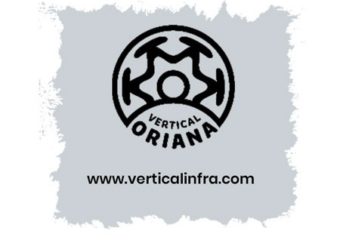
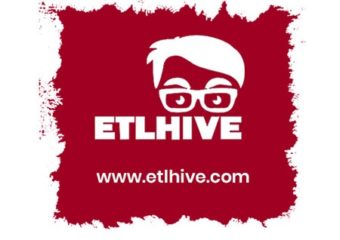


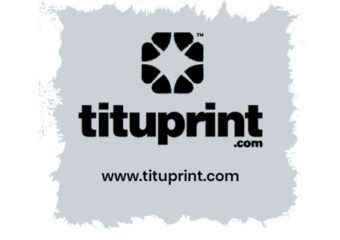













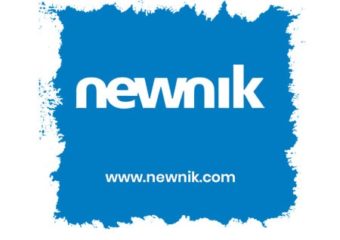

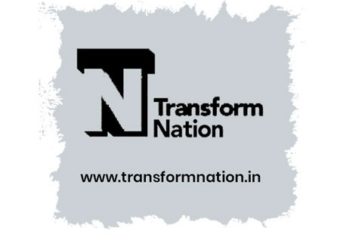

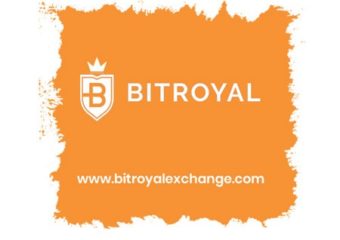
Recent Blog

Redefining SEO: The Impact of Google’s 2025 Algorithm Changes
Search Engine Optimization (SEO) is not a static practice—it keeps changing, particularly with Google’s regular algorithm updates. As we move deeper into 2025, digital marketers and business owners are already seeing another dramatic change in the way search results are ranked. From Google’s focus on user intent and experience to AI-led search

How Educational Institutions Can Increase Admissions through Internet Marketing
The education industry is changing fast, and so are the means through which students find and select institutions. Conventional advertising techniques such as leaflets, newspaper publications, and word of mouth
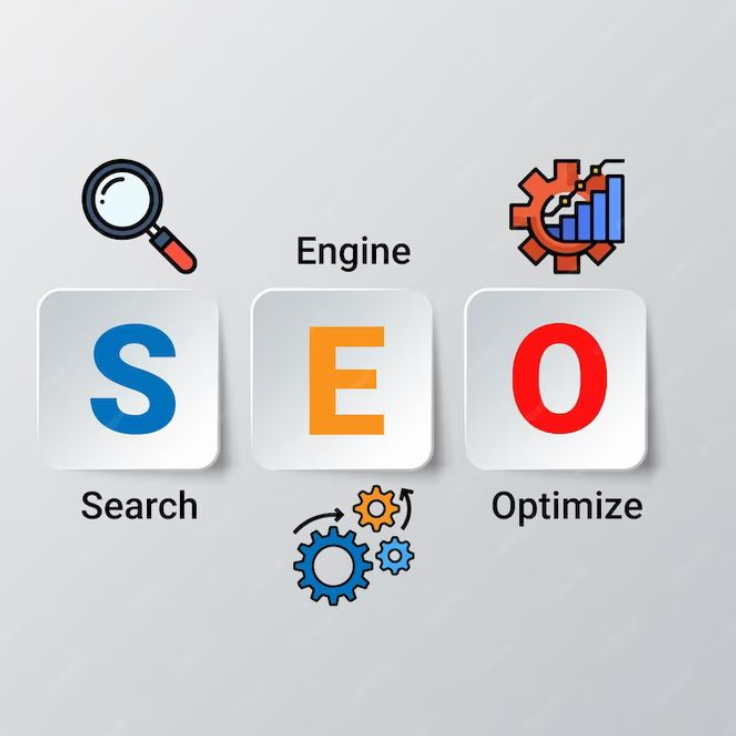
How Google Algorithm Updates are Redefining SEO in 2025
SEO evolves every year, and 2025 is not different. While companies attempt to rank better on Google and create organic traffic, Google continues improving its algorithm in order to provide

The Importance of Website Redesign: When and Why to Update Your Site
A website is a digital storefront for any business, making a strong first impression and playing a critical role in customer engagement. However, as technology evolves and consumer behavior changes,

